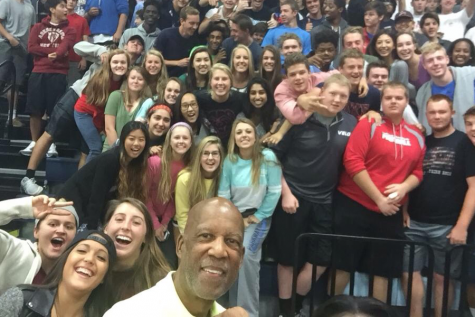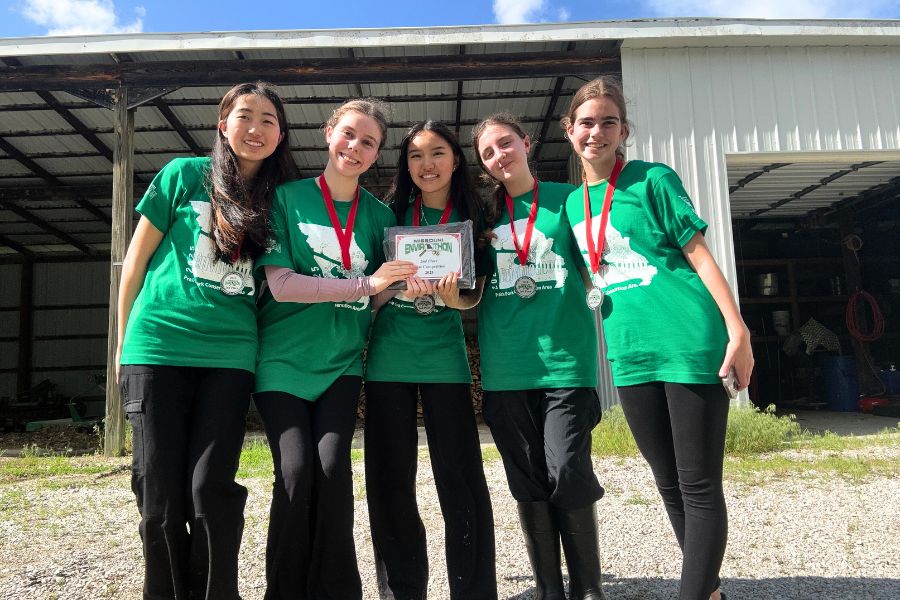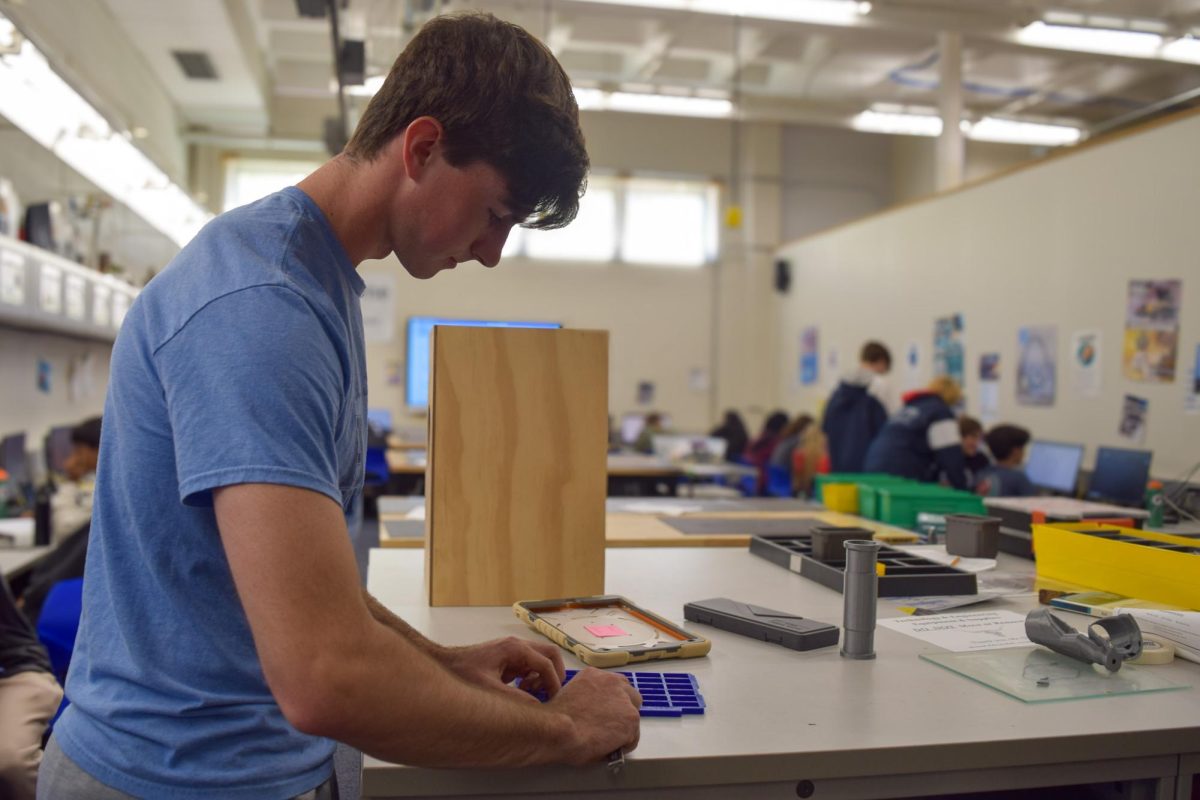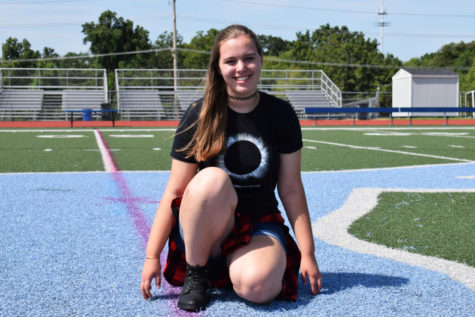How did your initial impression of West compare to your initial impression of Central High?
A lot of things are similar in terms of the way things are run. The educational process really hasn’t been changed over the years, which is unfortunate because a lot of things need to be altered dramatically. A lot of things similar, some different; we have reached a point where the law declares that people of color can go to school with people who are not of color, and that works fairly well for what it’s worth. But that’s not the issue. That’s never been the issue. The issue has been what is underneath, foundationally. What’s going on in this country? Can the schools actually become a good place where we learn about that? But we don’t. We still treat kids as if they’re idiots; we won’t allow them to develop their skills of critical inquiry. That’s down the road.
Why did your parents let you into Central High when so many others did not?
There were nine sets of parents who agreed, and I think the one thing that was special about all of them was that they understood that there was a window of opportunity because the law had changed, and this window of opportunity would be open for a brief time, not for a long time. As it turned out, they were very pressured in that because schools quickly went back to pre-1954 days shortly after that, and throughout this country, schools now currently more separate than they are desegregated throughout the country.
Did you have any teachers who supported you at Central High School?
At Central, there were some teachers that did support us, but there were few in number, typically because of social pressure. See, the atmosphere worked such that if you gave voice to any sentiment that supported school desegregation, you were in trouble, so you had to keep your voice mute if you wanted to survive.
What kind of student were you when you were back in school?
I was a good student. I figured out that in order to master the educational process, I had to learn to jump through the hoops presented. I also understood that I needed to learn, so I managed to have time to jump through the hoops and also to do independent learning: a lot of reading. I read voraciously. If you went to the library branch that was designated for black people in Little Rock – it was a small branch of the library, we couldn’t go to the large public library – my name was stamped on almost every book in there.
What kind of changes would you make if you could change the school system?
Well, I would demand that there be full participation on the part of students in establishing the curriculum and determining what needs to be learned. Right now, we have administrators and teachers who take on that full responsibility. We have people from the Secretary of Education on down who think that they know stuff, but they don’t, really. Students actually have a lot to say about what they need to learn, and they need the freedom to explore. We treat all students as if they are the same because we have this one way of dispensing information. We have students in a classroom with the teacher up front, dispensing information. That only works for some students. Other students need totally different environments, so we have to make sure that their needs are met.
Did you ever visit Little Rock again?
Oh yeah, I go to Little Rock all the time, and I’m going there in a few weeks. I go a couple of times – three or four every year. Little Rock has not changed a lot, but it’s like every other place in this country. No real change has occurred. Even though there are people who say that we have made radical changes, they’re lying. The change has been cosmetic. Now, I can drive through the streets of St. Louis without fear of being killed (I like that; that’s a positive change) but there are still places where I’m not welcome. There are still opportunities that are not available, and there’s a long list of those things.
What inspired you to share your story?
I think I have a need to help people understand the importance of all of our stories. Everyone in this universe has a story that is imperative to be heard by all others. It is only when we can share our stories that we have a chance to build any sort of unity.
What advice do you have for students who are trying to make change in their school community?
Well, I think that students have the responsibility to master whatever it is they have an interest in: to put your interest into becoming the best possible you. Modeling for others what it truly means to live in an integrated society. By integration, I mean where every other person is your peer. You don’t separate people into little groups, racial or cultural, everybody is on the same line of equality. That’s idealistic, of course, but we can lean in that direction. But if you can model that, then you will have done wonders for Parkway West.
What was the biggest thing that you wanted students to take away from your talk?
I wanted students to understand how important it was for them to become executives of their own learning. That’s the one thing that will make the real difference in any person or group of people, because that means you will not sit still for the nonsense that people are going to share with you in the name of “learning.” You will be critical, you will be analytical, you will be open to dialogue, you will demand answers to all the hard questions and you won’t be satisfied with easy answers. That will make a big difference, and I hope students understand that.
Do you have any plans for the future related to public speaking?
My wife – a professor in Southern California – and I actually have a plan. She’ll be retiring in a couple years but already we have a new website called Talking About Race because that is what we hope to do in our future. We are going to convene groups of people in various parts of this society to start a conversation because we think the conversation hasn’t started. People are afraid to talk. People are shy of even saying words. I had a woman, a high school principal, say to me, “I have zero tolerance of saying the n-word on my campus.” And I said to her, “Madam, I need some clarification because in my lexicon I got probably half a billion n-words, so which n-word were you referring to specifically?” And that threw her because she didn’t want to give voice to the word nigger, and I understood that. But I wanted her to know that then, she was unable to say it, and I said it for her. And then I said, “You know what, you’re wrong. You don’t have 100% lack of tolerance for that use.” She said, “Yes I do.” I said, “No, you do not. Because unless you can assign an adult human being to every single student and you are with that student 24 hours a day seven days a week, that student is saying nigger.” She was shocked. I said, “You don’t have zero tolerance for that word, you can’t police that. It would be important to have students to realize that, and you could have students sit down in your office to discuss the meaning of the word, why it’s used and really begin to make a different atmosphere. But right now, you’re the police. And that isn’t working.”



![Focused on providing exceptional service, sophomore Darsh Mahapatra carefully cleans the door of a customer’s car. Mahapatra has always believed his customers deserve nothing less than the best. “[If] they’re trusting us with their car and our service, then I am convinced that they deserve our 100 percent effort and beyond,” Mahapatra said.](https://pwestpathfinder.com/wp-content/uploads/2025/10/DSC_0018-1200x800.jpg)
![Sophomore Aleix Pi de Cabanyes Navarro (left) finishes up a soccer game while junior Ava Muench (right) warms up for cross country practice. The two came to Parkway West High School as exchange students for the 2025-2026 school year. “The goal for the [exchange] program is to provide opportunities for both Parkway students and our international exchange students to learn about other cultures, build connections and become confident, capable, curious and caring — Parkway’s Four C’s — in the process,” Exchange Program Lead Lauren Farrelly said.](https://pwestpathfinder.com/wp-content/uploads/2025/10/Feature-Photo-1200x800.png)

![Gazing across the stage, sophomore Alexis Monteleone performs in the school theater. The Monteleone family’s band “Monte and the Machine” has been releasing music since 2012, but Alexis started her own solo career in 2024 with the release of her first single, Crying Skies. “My whole family is very musical, [and I especially] love writing [songs with them],” Monteleone said.](https://pwestpathfinder.com/wp-content/uploads/2025/09/DSC7463-1200x798.jpg)
![Amid teaching a lesson to her AP Calculus BC class, Kristin Judd jokes alongside her students in their funny remarks. Judd has always enjoyed keeping the mood light in her classroom, along with on the volleyball court. “[I enjoy] that side talk where you see [or] overhear a conversation and chime in, or somebody says something funny,” Judd said.](https://pwestpathfinder.com/wp-content/uploads/2025/09/image-1200x730.jpg)
![Eyeing the ball, junior Ella McNeal poses for her commitment pictures at Clemson University. McNeal’s commitment comes after months of contact with top Division 1 soccer programs. “ It has taken a lot to get to where I am, but I know that [what] I've already been through is just the beginning, and I can't wait for what is to come,” McNeal said.](https://pwestpathfinder.com/wp-content/uploads/2025/09/IMG_4926-1200x900.jpeg)


![Senior Adam Zerega stands with senior Dexter Brooks by farm equipment. Zerega often worked with friends and family on his farm. “I've been able to go to my family's farm since I was born. I [spend] at least three weekends a month [on the farm], so I'm there all the time,” Zerega said.](https://pwestpathfinder.com/wp-content/uploads/2025/04/IMG_4872-1200x900.jpg)

